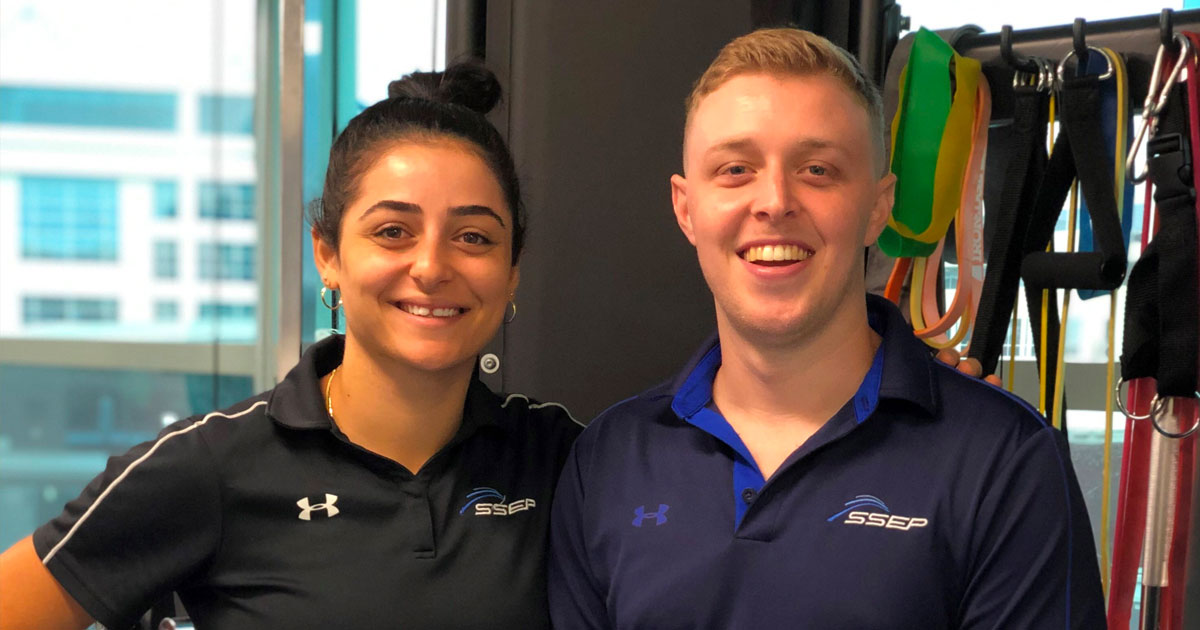
The role of exercise physiologists
Exercise physiologists (EP), Taylor and Chris, are an integral part of the patient rehabilitation experience at NSW Spine Specialists.
Taylor completed an Applied Science and Exercise Physiology degree at The University of Sydney. Meanwhile, Chris completed an undergraduate degree of Sport and Exercise Science at Australian Catholic University. He then went on to study a Masters of Clinical Exercise Physiology. To become an accredited exercise physiologist you need to be qualified by Exercise & Sports Science Australia; the governing body of tertiary trained exercise and sport science practitioners. To qualify, you require a minimum four year university degree inclusive of 500 hours of work experience. Accredited exercise physiologists must also maintain their qualification through ongoing education, seminars and first aid courses.
Chris, what’s the difference between an EP and a physio?
The major difference between exercise physiology and physiotherapy is the nature of treatment. Physiotherapy is a more passive based treatment where the therapist is more ‘hands on’ with the patient. Physiotherapists also tend to specialise in the acute stage of an injury/pathology or surgical recovery, to reduce acute symptoms and restore range of motion, mobility and movement. Exercise physiology is an active based treatment where restoration of strength, mobility and functional capacity is the primary goal. Along with strength and conditioning, an exercise physiologist will prescribe patients with active coping strategies such as trigger release, foam rolling and stretching, which serves as an active form of symptom management during flare ups.
By performing a clinical, structured rehabilitation and maintenance program, this will not only enhance overall function but also minimise the risk of re-injury.
Taylor, what’s the best part of your job?
The most positive aspect of the job is teaching ordinary individuals to take charge of their bodies, understand their own process of recovery and provide them with the tools to manage their condition or injury in the long term.
Seeing an individual improve and better themselves, and achieve feats that they did not think were possible, makes this job very worthwhile.

